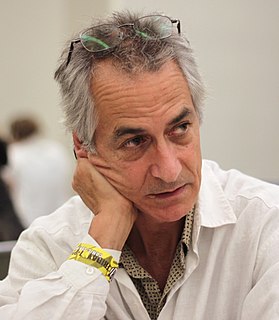A Quote by Reza Aslan
I think if you place Jesus firmly in the historical context... you can make very educated hypotheses and guesses about how he lived.
Quote Topics
Related Quotes
Jesus clearly believed in the reality of Satan and other principalities and powers. Now, I have very compelling historical, philosophical, and existential reasons for concluding that Jesus is Lord, and if I confess him to be Lord, I don't see how I can consider myself in a position to ever correct his theology, especially about such a foundational theological matter!
When America installs a minimum income, it's going to be doing it in a very different historical context than Switzerland or Sweden or Germany, or any other country might do it. And we're doing it in a context where it has the potential, I think, for much better consequences than in those other countries.
The Gospel of Thomas, greatly favored in some circles, is ignored by archaeologists, primarily because it exhibits no verisimilitude. It tells us nothing about the historical Jesus and the world he and his disciples lived in. I've heard it said, that if all we had was the Gospel of Thomas, would we even know that Jesus was Jewish?
I'm not entirely sure what a historical novel absolutely has to be, but you don't want a reader who loves a very traditional historical novel to go in with the expectation that this is going to deliver the same kind of reading experience. I think what's contemporary about my book has something to do with how condensed things are.
The field of the novel is very rich. If you're a composer, you're well aware of the history of composition, and you are trying to make your music part of that history. You're not ahistorical. In the same way, I think, if you write now, you are writing in the historical context of what the novel has been and what possibilities it has revealed.




































